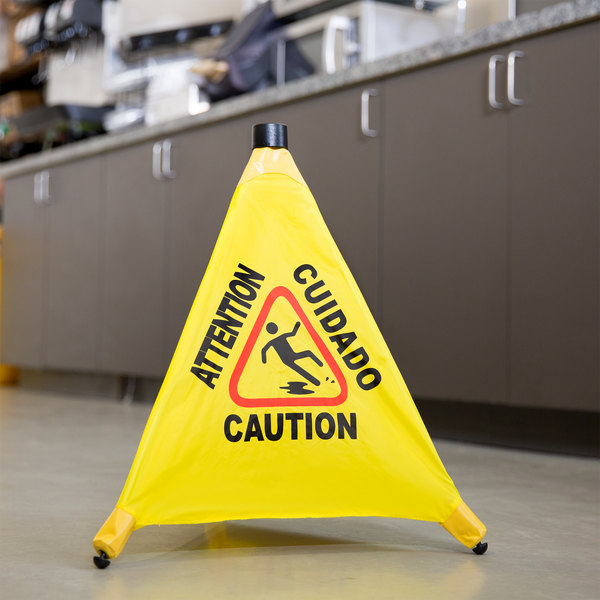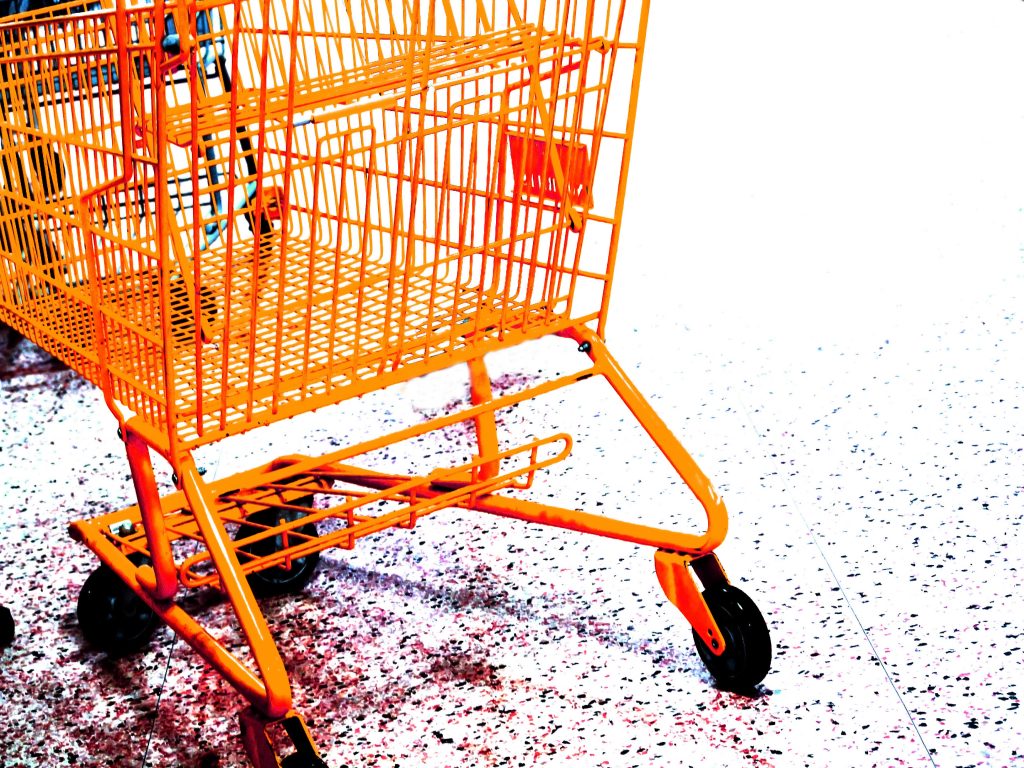 When in a restaurant, one expects the kitchen and the dining room to be clean, and it is the restaurant’s duty to uphold that expectation. However, in a busy restaurant someone could accidentally spill a drink, and it does not get cleaned up because the wait staff did not know about the spill. In an instance of a trip-and-fall on an unknown substance, is the restaurant liable for injuries? This is an issue the State of Louisiana First Circuit Court of Appeal recently decided.
When in a restaurant, one expects the kitchen and the dining room to be clean, and it is the restaurant’s duty to uphold that expectation. However, in a busy restaurant someone could accidentally spill a drink, and it does not get cleaned up because the wait staff did not know about the spill. In an instance of a trip-and-fall on an unknown substance, is the restaurant liable for injuries? This is an issue the State of Louisiana First Circuit Court of Appeal recently decided.
Cheryl Tate, her husband, and two of their friends decided to dine out at an Outback Steakhouse in Baton Rouge, Louisiana on September 21, 2012. Upon their arrival, they were immediately greeted by the hostess and led to their seats. However, after taking two or three steps towards their table, Mrs. Tate claims she slipped and fell on an unknown clear liquid that she did not see before she fell. After her fall, Mrs. Tate brought a lawsuit against Outback Steakhouse in the 19th Central District Court of Louisiana for damages pertaining to injuries she allegedly sustained from her slip and fall at the restaurant. However, after the discovery was complete, the Court dismissed the case on the grounds that Mrs. Tate could not meet her burden of proof that Outback Steakhouse had actual or constructive knowledge of the clear liquid Mrs. Tate alleges that she slipped on. Following this decision, Mrs. Tate decided to appeal the decision to the State of Louisiana First Circuit Court of Appeal.
In this appeal, the Court of Appeal is charged with determining if the summary judgement of the lower court is appropriate. According to La. C.C.P. art. 966(B)(2), “summary judgement is appropriate only if the pleadings, depositions, answers to interrogatories, and admissions, together with any affidavits, show that there is no genuine issue of material fact and that the mover is entitled to judgement as a matter of law.” This means that Mrs. Tate has to prove that she could be able to fulfill her evidentiary burden of proof at trial. The lower court granted summary judgement in favor of Outback Steakhouse because the court believed Ms. Tate could not meet this burden and therefore there was no genuine issue to be tried. However, on appeal the court must determine if this decision aligns with the law outlined in LA. R.S. 9:2800.6.
 Louisiana Personal Injury Lawyer Blog
Louisiana Personal Injury Lawyer Blog


 When a customer is injured in a slip and fall on a wet supermarket floor there are some situations where the supermarket is held responsible. Other times, there are situations where the supermarket is not at fault and the accident is chalked up to bad luck. Where that line is drawn is determined by what the supermarket knew or should have known about the dangerous condition. When is a slip and fall the Supermarkets fault?
When a customer is injured in a slip and fall on a wet supermarket floor there are some situations where the supermarket is held responsible. Other times, there are situations where the supermarket is not at fault and the accident is chalked up to bad luck. Where that line is drawn is determined by what the supermarket knew or should have known about the dangerous condition. When is a slip and fall the Supermarkets fault? Accidents happen – both on the job and when going about regular life.
Accidents happen – both on the job and when going about regular life. Sometimes accidents at work happen. But what happens when an accident could have been prevented by an employee? It is a common question to wonder whether an employer is still liable for the actions of an employee, especially in cases where a defect may be open and obvious. A Louisiana delivery driver confronted this very situation after he was injured on a loading dock.
Sometimes accidents at work happen. But what happens when an accident could have been prevented by an employee? It is a common question to wonder whether an employer is still liable for the actions of an employee, especially in cases where a defect may be open and obvious. A Louisiana delivery driver confronted this very situation after he was injured on a loading dock. Every business which opens its doors to the public owes a duty of care to their patrons, a duty to make sure the patron is safe and free from harm. Often, this is as simple as keeping walkways clear and ensuring spills and other hazards are cleaned up in a timely fashion. But what most businesses have never contemplated is a possibility that the duty of care would be owed to something other than a real, live, breathing person. Could the persons to which a merchant owes a duty of care include “juridical” personhood, such as a corporation or a limited liability company (L.L.C.)? In this instance, the answer was, “no.”
Every business which opens its doors to the public owes a duty of care to their patrons, a duty to make sure the patron is safe and free from harm. Often, this is as simple as keeping walkways clear and ensuring spills and other hazards are cleaned up in a timely fashion. But what most businesses have never contemplated is a possibility that the duty of care would be owed to something other than a real, live, breathing person. Could the persons to which a merchant owes a duty of care include “juridical” personhood, such as a corporation or a limited liability company (L.L.C.)? In this instance, the answer was, “no.”  Ms. Sayre was a guest at the L’Auberge Casino Resort in Lake Charles when she tripped and fell while walking in front of the hotel restaurant. Based on the video footage of the accident, there were witnesses to the slip and fall; however, the hotel failed to document anything or take statements from any of the witnesses. Ms. Sayre reported a sticky substance on the floor, and subsequently suffered injuries to her knee, hand, neck, and abdomen. Later, Ms. Sayre learned she also had three fractured ribs and a full rotator cuff tear that would require surgery. So, what happens if you slip and fall in a restaurant?
Ms. Sayre was a guest at the L’Auberge Casino Resort in Lake Charles when she tripped and fell while walking in front of the hotel restaurant. Based on the video footage of the accident, there were witnesses to the slip and fall; however, the hotel failed to document anything or take statements from any of the witnesses. Ms. Sayre reported a sticky substance on the floor, and subsequently suffered injuries to her knee, hand, neck, and abdomen. Later, Ms. Sayre learned she also had three fractured ribs and a full rotator cuff tear that would require surgery. So, what happens if you slip and fall in a restaurant? When most people think of filing a lawsuit, they expect to attend a trial in a court where a judge and jury decide the outcome of the case. However, most of the time cases are decided long before a trial is reached. One of the legal mechanisms for ending a lawsuit before it reaches trial is called a Motion for Summary Judgment. A summary judgment motion allows a party to ask the court to rule in their favor on a particular issue as a matter of law. The court may grant the motion if the parties are in agreement as to the important facts of the case and if the party that is making the motion is legally entitled to prevail on the claim in question. As this case demonstrates, a summary judgment motion can be an effective tool for ending a lawsuit, so when should you ask for summary judgement in a personal injury case?
When most people think of filing a lawsuit, they expect to attend a trial in a court where a judge and jury decide the outcome of the case. However, most of the time cases are decided long before a trial is reached. One of the legal mechanisms for ending a lawsuit before it reaches trial is called a Motion for Summary Judgment. A summary judgment motion allows a party to ask the court to rule in their favor on a particular issue as a matter of law. The court may grant the motion if the parties are in agreement as to the important facts of the case and if the party that is making the motion is legally entitled to prevail on the claim in question. As this case demonstrates, a summary judgment motion can be an effective tool for ending a lawsuit, so when should you ask for summary judgement in a personal injury case? Most people believe that if you suffer a slip and fall accident in a store, you will most likely be entitled to some level of compensation. Unfortunately, that is not always the case.
Most people believe that if you suffer a slip and fall accident in a store, you will most likely be entitled to some level of compensation. Unfortunately, that is not always the case.  Ice storms can create hazards for the general public as well as employees. A Mansfield nurse found out that parking lot falls do not qualify for workers’ compensation benefits. A Shreveport Hospital was able to avoid paying workers’ compensation benefits with the help of an excellent attorney after the employee’s fall.
Ice storms can create hazards for the general public as well as employees. A Mansfield nurse found out that parking lot falls do not qualify for workers’ compensation benefits. A Shreveport Hospital was able to avoid paying workers’ compensation benefits with the help of an excellent attorney after the employee’s fall.